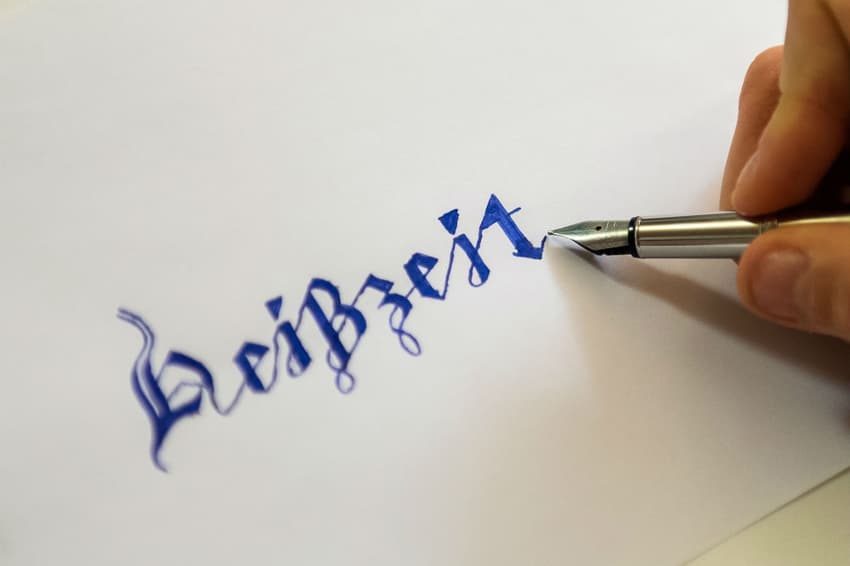German word of the day: Heißzeit
Our German word of the day is also the German word of the year, a panel of language experts decided Friday. Find out why it's formed a heated discussion since August.

The Society for the German Language (Gesellschaft für deutsche Sprache or GfdS) made the announcement on Friday that Heißzeit is now the top word to have emerged in German over the past year.
It’s not surprising, given that the word refers to both the unusually hot and dry summer that stretched on between April and October in Germany, but also climate change in general.
With the phonetic resemblance to ice age (Eiszeit), the expression takes on an epochal dimension beyond the mere meaning of "period in which it is hot", and possibly refers to a changing climate period, according to the Wiesbaden jury in its reasoning.
Other terms used often in German to describe the the warmer weather around the globe are Erwärmung (global warming) or Klimaänderung (climate change).
During the long and intense German summer, farmers were plagued with drought, fires broke out with especially high intensity, and the water levels of the Rhine dropped (so much so that a World War II bomb was discovered there).
SEE ALSO: 'We need intense rainfall': Drought cripples crucial German waterways
The news in Germany has indeed been scarily similar to that in much of the rest of the world.
That explains why in August climate researchers spoke of the scary dangers of increasing temperatures - even if the Paris Climate Agreement was agreed to - in a special edition of “Proceedings of the National Academy of Sciences”.
The German media then clung to the term Heißzeit, favouring it over the previous ways of describing climate change. Interestingly, the more moderately sounding Warmzeit is used in German to describe the interglacial period of warmer global temperatures lasting hundreds of years.
Heißzeit takes to term to the new extreme, and expresses that the higher temperatures could mean more than just the natural cycle following an Eiszeit.
Since 1977, the GfdS has selected a word annually in order to describe terms that have determined political, economic and social life in a special way.
Here are a few headlines in the German media which have used the term since August:
Erde rast auf Heißzeit zu - The earth races towards a hot period, from Deutschlandradiofunk on December 13th
Wissenschaftler warnen vor Heißzeit - Researchers warm of a hot period, from Tagesschau on August 6th
Was wäre schlimmer: Heißzeit oder Eiszeit? - What would be worse? A period of heat or ice? from MOZ.de (of Brandenburg) on August 18th
Do you have a favourite word you'd like to see us cover? If so, please email our editor Rachel Stern with your suggestion.
This content was paid for by an advertiser and produced by The Local's Creative Studio.

Join the conversation in our comments section below. Share your own views and experience and if you have a question or suggestion for our journalists then email us at [email protected].
Please keep comments civil, constructive and on topic – and make sure to read our terms of use before getting involved.
Please log in here to leave a comment.